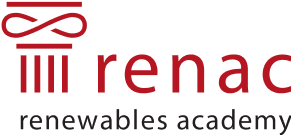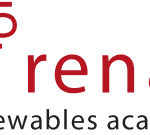This website uses cookies so that we can provide you with the best user experience possible. Cookie information is stored in your browser and performs functions such as recognising you when you return to our website and helping our team to understand which sections of the website you find most interesting and useful.
Customer-specific programmes
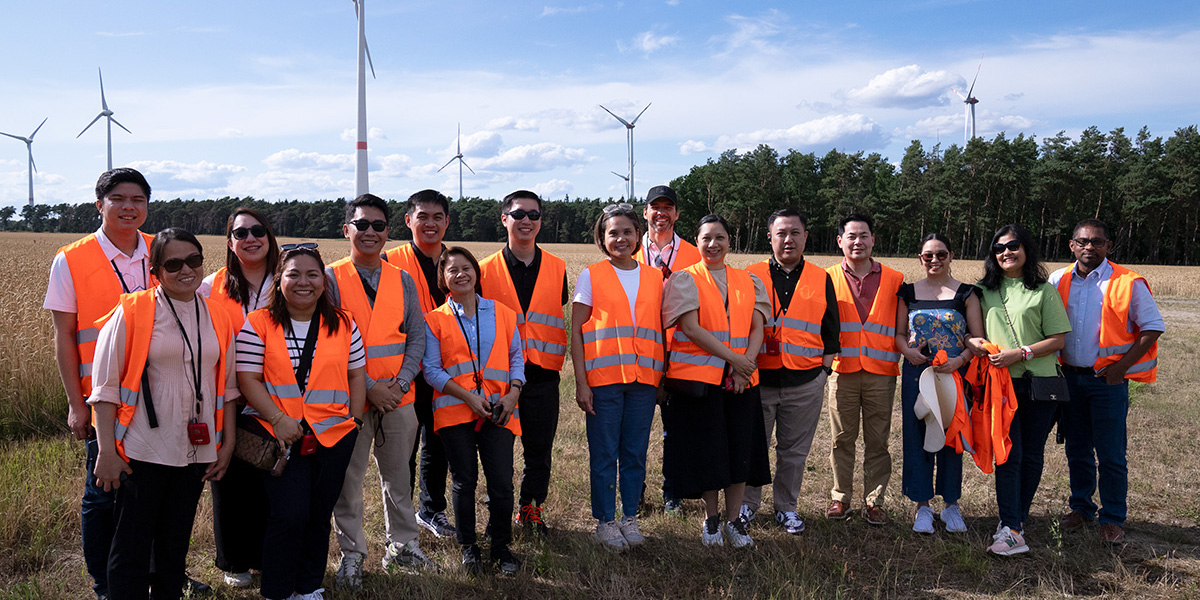
Job requirements in the green energy markets are complex and manifold. To ensure a company or organisation success, employees need extensive skills and up-to-date know-how.
RENAC customer-specific programmes offer the best way to meet participants’ training objectives:
- Analysis of participants’ capacity needs
- Selection of training contents and methods according to prior knowledge and needs
- The most suitable trainers
- Development of comprehensive materials with the highest quality standards
- Implementation of the training
Additionally, the training can be adjusted in duration and depth, organised for groups of various sizes and adapted to cover various technologies. Clients can determine when and where the training takes places.
Filter and search
Type
Name
Duration
Study time
Info
- country case studies, India, jobs, skills, South Africa, Turkey, Vietnam
hours
Content:
Countries available
- India
- South-Africa
- Turkey
- Vietnam
Learning objectives:
After completion of this course, participants will be able to:
- Describe the impact of renewable energy investment in job creation
- Explain the co-benefits relation with RE investment and the future skills and job creation in the target country
- Describe the methodology to assess the impact of RE investment in future skills and job creation
Target group:
This training suits those who:
- are interested in, and wants to learn how to assess the impacts of renewable energy deployment on job creation and skills development in different country contexts
- capacity credit, equivalent load carrying capacity, generation adequacy, PLEXOS, tools/software overview, WASP
hours
Content:
• Generation adequacy
• Firm capacity of variable renewable energies
• Impact of VRE on generator dispatch
• Standard software tools for generation expansion planning
Learning objectives:
After completing this course, participants will be able to:
- Describe the purpose of generation expansion planning
- Explain factors influencing the Capacity Credit of VRE
- Illustrate load duration and Residual Load Duration Curve
- Name standard software tools: WASP model and PLEXOS model
Target group:
Professionals from the energy sector (engineers)
- double fed induction generator, fully converted generator, inverter technology, synchronous and induction generator
hours
Content:
• AC generators
• DC generators
Learning objectives:
After completing this course, participants will be able to:
- Explain AC power generation concepts for grid connected fixed and variable speed generators
- Describe wind turbine concepts, advantages and disadvantages
- Present PV systems (DC generators, main components, single phase and three phase inverters)
Target group:
Professionals from the energy sector (engineers)
- economics, finance, project development, RE market development, suitable locations, types of systems
hours
Content:
• Introduction
• Market potential of geothermal energy
• Applications
• Economic aspects of geothermal energy systems
Learning objectives:
After completion of this course, participants will be able to:
- Distinguish different applications of geothermal energy systems in connection with geological requirements
- Name the current market development and the market potential for geothermal energy
- Explain the phases of geothermal project development
- Evaluate geothermal energy based on economic, environmental and social aspects
Target group:
This training suits those who:
- Are interested in geothermal power generation in general and want to get a general idea about its use
- People from all kinds of backgrounds
- drilling technologies, geologic control factors, modelling, pumping the reservoir, reservoir parameters, thermodynamic laws
hours
Content:
• Natural resource and geothermal energy potential
• Technical Systems for geothermal electricity generation
Learning objectives:
After completion of this course, participants will be able to:
- Name the natural resource (geological) requirements for geothermal energy
- Explain the special role of geothermal exploration
- Distinguish different types of reservoirs and related parameters
- Explain principles of different technical systems for geothermal power generation and distinguish their area of application
Target group:
This training suits those who:
- Are interested in geothermal power generation and want to learn more about technical functionality and technical parameters
- Have a basic technical background
- components, financial analysis, project development, sizing, standards and norms, system design
hours
Content:
- Design and sizing of systems
- main plant components
- international standards
- Sustainability
- Requirements for the preparation of bankable business cases
- Economic viability
- Financial evaluation of business cases
- Checklists
Learning objectives:
After completion of this course, participants will be able to:
• explain the design and sizing of important plant components
• explain the main plant components
• explain plant operation and safety
• assess the economic viability
Target group:
This training suits those who
• The training is to be designed for professionals who want to develop projects (project developers) as well as
• for employees of banks, insurance companies and other financial institutions (financiers)
- contracts, due diligence, financial modelling, project finance, RE fundamentals
Content:
- Introduction to RE Markets & Green Energy Finance
- Fundamentals of RE Technologies
- Experience with RE Market Designs, Institutional Frameworks & Financing Conditions in Europe
- Project Risks and Mitigation Techniques (group work)
- Valuation, Financing & Due Diligence
- Cash Flow Planning & Valuation
- Project Finance
- Due Diligence (scope and best practice)
- Introduction to the RENAC Financial Model
- Financial Modelling Case Study (group work)
Learning objectives:
After the seminar participants will be able to:
- Have an overview of the market scope and potential
- Understand the relevant RE technologies
- Evaluate RE projects
- Use financial models for RE projects
- Know about options for international climate finance and how to access such funds
Target group:
This training suits:
Professionals from the public and private sector working in the field of energy and finance who may come from the following backgrounds:
- Financing institutions
- Project developers
- Ministries
- Utilities
- overview / general aspects, transport
hours
Content:
• Transport options (road, train, ship, pipeline)
• Transport means and infrastructure
• Typical capacities of transport options
• Requirements for hydrogen blending in natural gas networks and 100% hydrogen pipeline infrastructure
• Ammonia reforming plants (from ammonia to hydrogen)
• Energy consumption
• Sustainability, risks and risk mitigation
• Economic viability
Learning objectives:
After completion of this course, participants will be able to:
- explain the transport options (road, train, ship, pipeline) for hydrogen and ammonia
- explain the energy efficiency of transport options and
- compare the economic viability of transport options.
Target group:
This training suits those who
- The training is to be designed for professionals who want to develop projects (project developers) as well as
for employees of banks, insurance companies and other financial institutions (financiers)
- electrolyser, finance, financial viability, investment risks, project development, project sizing, storage, technical aspects for conversion, transport
Content:
- Properties of hydrogen
- Hydrogen production technology
- Sizing and design of an electrolysis plant
- Hydrogen production project planning, risks and risks mitigation
- Hydrogen production investment risks and insurance
- Hydrogen commercial business case
- Hydrogen financial viability case
- Advanced use of LCOE/H2 calculator (Green Hydrogen Cost Calculation Training Tool (Excel and handbook)
- Presentation of case study results
Learning objectives:
After the seminar participants shall be able to:
- explain the physical properties of hydrogen and convert volume- and mass-related quantities into each other
- explain the electrolyser technology (focus on AEL, PEM and SOEC), conversion technologies (e.g., compression, ammonia production, etc.), storage and transport options of green hydrogen projects
- explain how the energy sources wind power and photovoltaic can impact the hydrogen project planning and sizing
- apply important sustainability aspects in the planning of green hydrogen projects including water resources, land use and infrastructure
- describe important tasks of construction, commissioning and operation
- consider key technical and safety risks and mitigation strategies for project planning and operation
- manage financial contracts and investment risks / insurance
- evaluate hydrogen business case and profiles
- asses financial viability and investment costs for hydrogen projects
- answer selected finance questions from praxis
- apply fundamentals of the hydrogen cost calculation
- apply of RENAC’s hydrogen cost calculation training tool (excel)
Target group:
This training suits those who:
- are professionals and want to build capacities in green hydrogen project development,
- are working in the energy sector, such as engineers and project managers,
- are involved in the development of green hydrogen projects,
- are working in the field of environmental management and sustainability, including consultants, policymakers, and analysts and
- are seeking to get a deep dive into of hydrogen production technologies, infrastructure, and short-term storage
- components, financial analysis, offshore, project development, sizing, standards and norms, system design
hours
Content:
• Design and sizing of systems
• main plant components
• international standards
• Sustainability
• Requirements for the preparation of bankable business cases
• Economic viability
• Financial evaluation of business cases
• Checklists
• Offshore wind hydrogen electrolysis
Learning objectives:
After completion of this course, participants will be able to:
• explain the design and sizing of important plant components for the production of green hydrogen with electricity from wind and photovoltaics
• explain the main plant components of onshore electrolyser plants
• explain onshore electrolyser plant operation and safety
• explain sustainability considerations for onshore electrolyser plants
• assess the economic viability of onshore electrolyser plants
• explain the fundamentals of offshore wind hydrogen electrolysis
Target group:
- checklist for implementation, country case studies, introduction to microfinance
hours
Content:
- Introduction
- Green microfinance: examples
- Green microfinance: Checklist for implementation
Learning objectives:
After completion of this course, participants will be able to:
- Understand the concept of green microfinance
- Get to know present cases of green microfinance products with climate change relevance
Target group:
This course suits those who
- Care about financial inclusion of micro, small and medium sized enterprises (MSME)
- Want to develop microfinance projects for small-scale renewable energy or energy efficiency appliances
- grid code structure, technical requirements, voltage and frequency control
hours
Content:
• Development and purpose
• Grid code structure
• Technical requirements
Learning objectives:
After completing this course, participants will be able to:
- Describe the purpose, use and content of grid codes
- Distinguish Point of Connection (POC) and Point of Common Coupling (PCC)
- Explain frequency range of operation and voltage range of operation
- Analyse power quality aspects (e.g. reactive power capability)
Target group:
Professionals from the energy sector (engineers)
Content:
Countries available
- India
- South-Africa
- Turkey
- Vietnam
Learning objectives:
After completion of this course, participants will be able to:
- Describe the impact of renewable energy investment in job creation
- Explain the co-benefits relation with RE investment and the future skills and job creation in the target country
- Describe the methodology to assess the impact of RE investment in future skills and job creation
Target group:
This training suits those who:
- are interested in, and wants to learn how to assess the impacts of renewable energy deployment on job creation and skills development in different country contexts
Content:
• Generation adequacy
• Firm capacity of variable renewable energies
• Impact of VRE on generator dispatch
• Standard software tools for generation expansion planning
Learning objectives:
After completing this course, participants will be able to:
- Describe the purpose of generation expansion planning
- Explain factors influencing the Capacity Credit of VRE
- Illustrate load duration and Residual Load Duration Curve
- Name standard software tools: WASP model and PLEXOS model
Target group:
Professionals from the energy sector (engineers)
Content:
• AC generators
• DC generators
Learning objectives:
After completing this course, participants will be able to:
- Explain AC power generation concepts for grid connected fixed and variable speed generators
- Describe wind turbine concepts, advantages and disadvantages
- Present PV systems (DC generators, main components, single phase and three phase inverters)
Target group:
Professionals from the energy sector (engineers)
Content:
• Introduction
• Market potential of geothermal energy
• Applications
• Economic aspects of geothermal energy systems
Learning objectives:
After completion of this course, participants will be able to:
- Distinguish different applications of geothermal energy systems in connection with geological requirements
- Name the current market development and the market potential for geothermal energy
- Explain the phases of geothermal project development
- Evaluate geothermal energy based on economic, environmental and social aspects
Target group:
This training suits those who:
- Are interested in geothermal power generation in general and want to get a general idea about its use
- People from all kinds of backgrounds
Content:
• Natural resource and geothermal energy potential
• Technical Systems for geothermal electricity generation
Learning objectives:
After completion of this course, participants will be able to:
- Name the natural resource (geological) requirements for geothermal energy
- Explain the special role of geothermal exploration
- Distinguish different types of reservoirs and related parameters
- Explain principles of different technical systems for geothermal power generation and distinguish their area of application
Target group:
This training suits those who:
- Are interested in geothermal power generation and want to learn more about technical functionality and technical parameters
- Have a basic technical background
Content:
- Design and sizing of systems
- main plant components
- international standards
- Sustainability
- Requirements for the preparation of bankable business cases
- Economic viability
- Financial evaluation of business cases
- Checklists
Learning objectives:
After completion of this course, participants will be able to:
• explain the design and sizing of important plant components
• explain the main plant components
• explain plant operation and safety
• assess the economic viability
Target group:
This training suits those who
• The training is to be designed for professionals who want to develop projects (project developers) as well as
• for employees of banks, insurance companies and other financial institutions (financiers)
Content:
- Introduction to RE Markets & Green Energy Finance
- Fundamentals of RE Technologies
- Experience with RE Market Designs, Institutional Frameworks & Financing Conditions in Europe
- Project Risks and Mitigation Techniques (group work)
- Valuation, Financing & Due Diligence
- Cash Flow Planning & Valuation
- Project Finance
- Due Diligence (scope and best practice)
- Introduction to the RENAC Financial Model
- Financial Modelling Case Study (group work)
Learning objectives:
After the seminar participants will be able to:
- Have an overview of the market scope and potential
- Understand the relevant RE technologies
- Evaluate RE projects
- Use financial models for RE projects
- Know about options for international climate finance and how to access such funds
Target group:
This training suits:
Professionals from the public and private sector working in the field of energy and finance who may come from the following backgrounds:
- Financing institutions
- Project developers
- Ministries
- Utilities
Content:
• Transport options (road, train, ship, pipeline)
• Transport means and infrastructure
• Typical capacities of transport options
• Requirements for hydrogen blending in natural gas networks and 100% hydrogen pipeline infrastructure
• Ammonia reforming plants (from ammonia to hydrogen)
• Energy consumption
• Sustainability, risks and risk mitigation
• Economic viability
Learning objectives:
After completion of this course, participants will be able to:
- explain the transport options (road, train, ship, pipeline) for hydrogen and ammonia
- explain the energy efficiency of transport options and
- compare the economic viability of transport options.
Target group:
This training suits those who
- The training is to be designed for professionals who want to develop projects (project developers) as well as
for employees of banks, insurance companies and other financial institutions (financiers)
Content:
- Properties of hydrogen
- Hydrogen production technology
- Sizing and design of an electrolysis plant
- Hydrogen production project planning, risks and risks mitigation
- Hydrogen production investment risks and insurance
- Hydrogen commercial business case
- Hydrogen financial viability case
- Advanced use of LCOE/H2 calculator (Green Hydrogen Cost Calculation Training Tool (Excel and handbook)
- Presentation of case study results
Learning objectives:
After the seminar participants shall be able to:
- explain the physical properties of hydrogen and convert volume- and mass-related quantities into each other
- explain the electrolyser technology (focus on AEL, PEM and SOEC), conversion technologies (e.g., compression, ammonia production, etc.), storage and transport options of green hydrogen projects
- explain how the energy sources wind power and photovoltaic can impact the hydrogen project planning and sizing
- apply important sustainability aspects in the planning of green hydrogen projects including water resources, land use and infrastructure
- describe important tasks of construction, commissioning and operation
- consider key technical and safety risks and mitigation strategies for project planning and operation
- manage financial contracts and investment risks / insurance
- evaluate hydrogen business case and profiles
- asses financial viability and investment costs for hydrogen projects
- answer selected finance questions from praxis
- apply fundamentals of the hydrogen cost calculation
- apply of RENAC’s hydrogen cost calculation training tool (excel)
Target group:
This training suits those who:
- are professionals and want to build capacities in green hydrogen project development,
- are working in the energy sector, such as engineers and project managers,
- are involved in the development of green hydrogen projects,
- are working in the field of environmental management and sustainability, including consultants, policymakers, and analysts and
- are seeking to get a deep dive into of hydrogen production technologies, infrastructure, and short-term storage
Content:
• Design and sizing of systems
• main plant components
• international standards
• Sustainability
• Requirements for the preparation of bankable business cases
• Economic viability
• Financial evaluation of business cases
• Checklists
• Offshore wind hydrogen electrolysis
Learning objectives:
After completion of this course, participants will be able to:
• explain the design and sizing of important plant components for the production of green hydrogen with electricity from wind and photovoltaics
• explain the main plant components of onshore electrolyser plants
• explain onshore electrolyser plant operation and safety
• explain sustainability considerations for onshore electrolyser plants
• assess the economic viability of onshore electrolyser plants
• explain the fundamentals of offshore wind hydrogen electrolysis
Target group:
Content:
- Introduction
- Green microfinance: examples
- Green microfinance: Checklist for implementation
Learning objectives:
After completion of this course, participants will be able to:
- Understand the concept of green microfinance
- Get to know present cases of green microfinance products with climate change relevance
Target group:
This course suits those who
- Care about financial inclusion of micro, small and medium sized enterprises (MSME)
- Want to develop microfinance projects for small-scale renewable energy or energy efficiency appliances
Content:
• Development and purpose
• Grid code structure
• Technical requirements
Learning objectives:
After completing this course, participants will be able to:
- Describe the purpose, use and content of grid codes
- Distinguish Point of Connection (POC) and Point of Common Coupling (PCC)
- Explain frequency range of operation and voltage range of operation
- Analyse power quality aspects (e.g. reactive power capability)
Target group:
Professionals from the energy sector (engineers)
Target Groups
Public sector officials for legal frameworks, regulation and implementation:

- Ministries
- Regulators
- Local administrations
Multipliers and development organisations:

- Development corporations
- Energy agencies
- International financing institutions
- NGOs
Private sector:

- Project developers
- System integrators
- Engineers and technicians
- Investors
- Financing institutions
- Grid operators
Capacity building and dissemination sector:

- Public and private training institutions
- Vocational training institutions
- Universities
Value Chain
We design and implement customer-specific programmes and services along the value chain in a holistic concept.
Our approach to Renewable Energy (RE) and Energy Efficiency (EE) is manifold: technology related knowledge is the basis and then each RENAC training and service focus on technical, economic, legal or project related aspects according to the target group. RENAC is also very active in international business matchmaking and market development services.
In our capacity building services we supply a variety of programmes to train trainers, to build training centres and to establish quality assurance processes.
Our Training Concept
Customer-Specific Programmes – what does it mean?
We offer customer-specific programmes according to client needs and participant job requirements in all green energy sectors. Based on an analysis of requested knowledge or specific job tasks and the level of existing knowledge, we develop a training concept proposal.
The concept includes recommendations for online or in-person trainings, or both. We develop the training concept taking the given resources on budget and learning time into account. After feedback from the client, we fine-tune the concept for approval.
Depending on the needs of our clients, we offer different levels of trainings (basic, intermediate, and advanced).
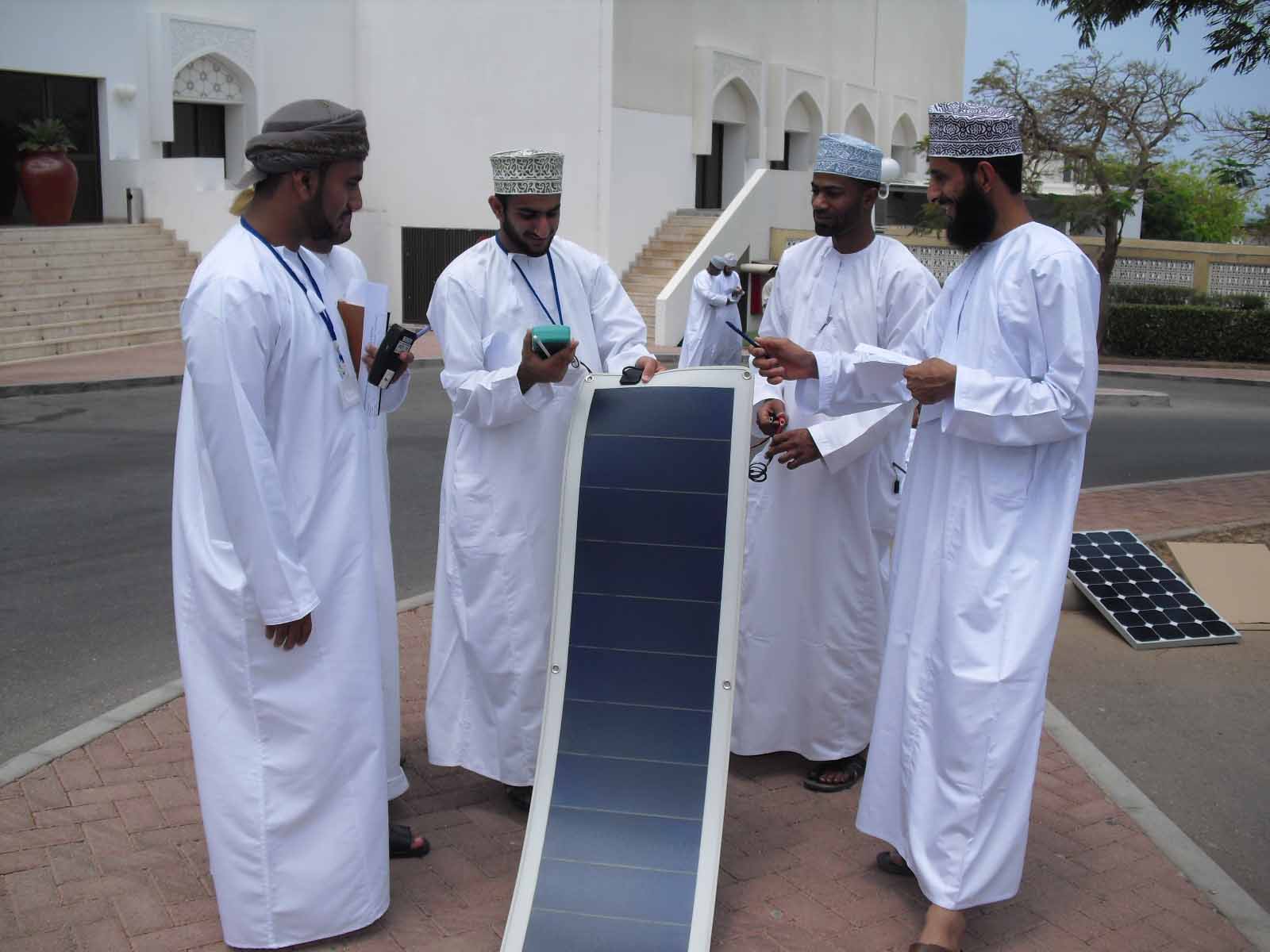
Service Catalogue
Find detailed information about the programme that best aligns with your needs and preferences.
Are you interested in a Customer-specific programmes?
Kindly fill out this questionnaire and attach it to the form on the right:
© 2024 | Renewables Academy (RENAC) AG
